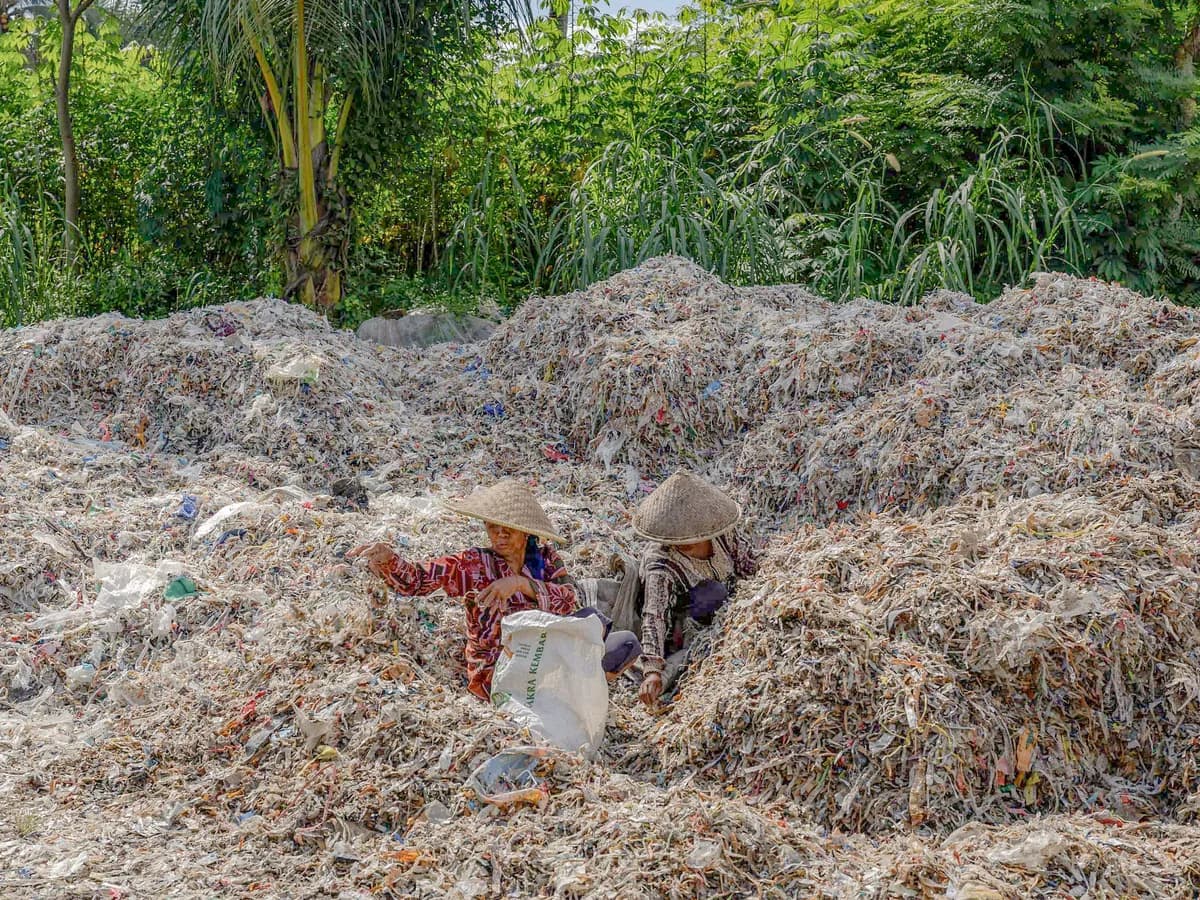We're loading the full news article for you. This includes the article content, images, author information, and related articles.
Britain's plastic waste exports to developing countries have dramatically increased in the first half of this year, sparking criticism from environmental campaigners who label it 'unethical and irresponsible waste imperialism.'

Britain's exports of plastic waste to developing countries have surged by 84% in the first half of 2025 compared to the same period last year, according to an analysis of trade data by The Guardian. This significant increase, primarily directed towards Malaysia and Indonesia, has drawn sharp condemnation from environmental campaigners, who describe it as "unethical and irresponsible waste imperialism."
The data, analysed by the US-based group The Last Beach Cleanup, revealed that Indonesia received 24,006 tonnes of UK plastic waste in the first half of 2025, a substantial rise from 525 tonnes in 2024. Similarly, exports to Malaysia increased to 28,667 tonnes from 18,872 tonnes in 2024. Overall, the percentage of UK plastic waste sent to non-OECD countries rose from 11% in the first half of 2024 to 20% in the first half of 2025.
Kenya has taken a strong stance against plastic pollution, implementing some of the world's strictest bans on single-use plastics. In 2017, the country banned the manufacture, use, and import of plastic carrier bags, with penalties including hefty fines and imprisonment. This ban was further extended in June 2020 to include single-use plastics in protected natural areas such as national parks, beaches, and forests.
Despite these progressive policies, Kenya continues to grapple with significant plastic waste challenges. The capital, Nairobi, generates an estimated 2,400 tonnes of solid waste daily, with plastic constituting about 20% of this. While the National Environment Management Authority (NEMA) aims for an 80% waste recovery target, only about 45% of the waste generated in Nairobi is currently recycled, reused, or transformed.
Kenya's commitment to combating plastic pollution has been lauded globally, with the country being an early adopter of the Clean Seas initiative. However, the nation has also faced pressure to loosen its strict regulations. In 2020, the American Chemistry Council reportedly lobbied the United States to include terms in a trade agreement with Kenya that would make it easier to export plastic waste to the East African nation. The Kenyan Ministry of Trade, Industrialisation and Enterprise Development, through its Cabinet Secretary, publicly stated that Kenya would not agree to this proposal.
The European Union, in 2023, agreed to ban exports of waste to poorer nations outside the Organisation for Economic Co-operation and Development (OECD), with this ban set to come into force in November 2026. The UK, however, does not currently have a similar ban in place, despite a 2019 Conservative government manifesto pledge to ban plastic waste exports to non-OECD countries that has not yet been implemented.
The influx of plastic waste into developing countries like Malaysia and Indonesia highlights a global issue that could have significant implications for nations like Kenya. While Kenya has largely resisted direct imports of plastic waste for disposal, the broader trend of developed nations exporting their plastic waste raises concerns about potential indirect impacts and the strain on global waste management systems.
Kenya's plastic waste management largely relies on an informal recycling sector, where waste pickers collect materials from dumpsites. While this sector provides livelihoods, it is often inadequate due to a lack of formal integration with plastic production and solid waste management systems. Furthermore, illegal imports of plastic carrier bags from neighbouring countries continue to pose a challenge to Kenya's ban.
The ongoing global discussions around plastic pollution, particularly at international forums, will be crucial. Campaigners are urging the UK to follow the EU's lead and implement a ban on plastic waste exports to non-OECD countries. For Kenya, continued vigilance against illegal plastic waste imports and strengthening its domestic recycling infrastructure will be key to sustaining its environmental gains. The development of Extended Producer Responsibility (EPR) regulations in Kenya, which aim to make manufacturers responsible for their waste, could also significantly impact future plastic waste management.
Keep the conversation in one place—threads here stay linked to the story and in the forums.
Sign in to start a discussion
Start a conversation about this story and keep it linked here.
Other hot threads
E-sports and Gaming Community in Kenya
Active 9 months ago
The Role of Technology in Modern Agriculture (AgriTech)
Active 9 months ago
Popular Recreational Activities Across Counties
Active 9 months ago
Investing in Youth Sports Development Programs
Active 9 months ago